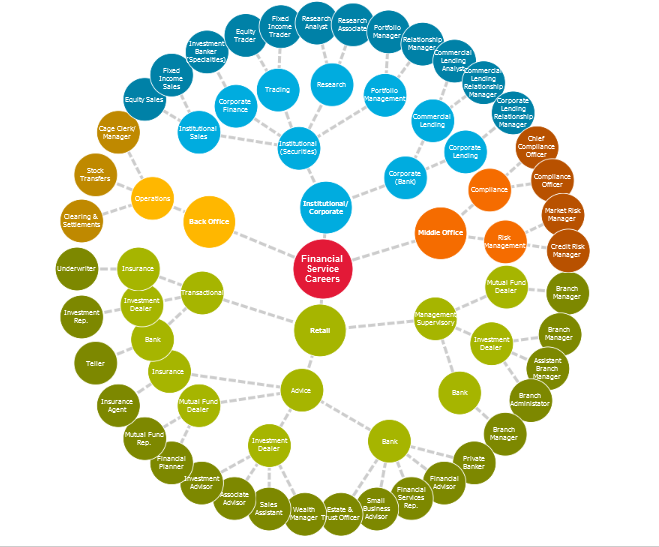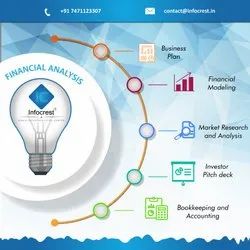
It can be difficult to write a creative brief. The brief should be clear and concise. To help the client solve their problem, your creative brief should be clear, simple, and easy to understand. It shouldn't provide the complete solution. However, it should be a starting point to encourage creativity in the design group. It should contain a brief that is carefully written and creatively crafted in order to solve the client’s problem.
Create a key consumer benefit (KCB).
You can focus your marketing efforts by creating a creative brief that highlights a single benefit for the audience. One key consumer benefit may be a feature or benefit that the audience is looking to gain. The ultimate goal of any project or the feeling you want your audience have after using a product/service is a key benefit or pain point.
Be sure to research the competition and analyze their products or services. Also, consider their target audience when creating a creative brief. This will help you narrow your focus and identify your company's niche within the market. A KCB or key messaging should clearly describe the solution that the product/service will offer consumers. Next, make sure to include testimonials and stories in the creative brief.

Include deliverable dates
Be sure to include delivery dates and deadlines in your creative brief. This will help avoid confusion later. You should also include brand guidelines as well as internal messaging. Your creative team will perform better if you provide more detail. You should include the deadline and any revisions or approvals that you require. In addition, remember to include the deliverable dates for each stage of the project.
Lastly, you should include a thorough description of your target audience, your competition, and the market your company is in. Be concise with your brief, and make sure you include your company branding messages to your target audiences. It will be easier to avoid making endless revisions by having a concise creative brief. It will also allow your agency be as transparent as possible with all information.
Include brand guidelines
It is important to include brand guidelines within your creative brief. This will help ensure that all work is in keeping with the brand’s values and tone. These guidelines will help the designer get to know the brand's vision and voice so that they can create work that is consistent with it. Here are some guidelines for including brand guidelines into your creative brief. These guidelines can be used as a guideline to help you create your campaign brief. This guideline will ensure that you don't leave any detail out of your creative brief.
The brief should cover the entire brand. But it shouldn't be too detailed. The brief should give a quick overview of your brand and target audience with a few paragraphs detailing the goals. It should also include background information on the brand, including the target audience. If the creative team is unfamiliar with the brand they should be able learn it quickly and complete the project. Additionally, the creative brief must include the brand guidelines as well as the deliverables for the project.

Include client's voice
It is important to include the voice of your clients when developing creative briefs. This is often the most difficult part. The creative brief can be daunting because there is so many details to consider. Here are five reasons projects often fail. All of these reasons do not stem from the creative brief. However, they are all connected to a conflict with the project's artistic elements. Here are some ways to make your brief appealing to clients.
Make a brief that outlines the main elements of your project. In order to inform your work, include the voice and style preferences of your client. Don't forget to include demographic and behavioral data about your target audience. This will help your team to come up with an effective content strategy. Be persuasive in your messaging and push your audience to action. Include the client's voice, tone, style, and design in your creative brief.
FAQ
Why would you want to hire consultants?
There are many factors that could lead to you hiring consultants.
-
You may have a problem or project that your organization needs to solve.
-
You want to improve your own skills or learn something new
-
You want to work with an expert in a particular field
-
There is no one else available to handle the task
-
Feel overwhelmed by all the information available and don't know where you should start
-
You don't have the money to pay someone full time
A word of mouth referral is the best way you can find a competent consultant. Ask your friends and family if they know of any reliable consultants. Ask someone you already know to recommend a consultant.
If you're interested in using online directories, such as LinkedIn, you can use the "Search People” feature to find consultants near your location.
What can I expect of my consultant?
When you choose your consultant, they should respond within a few working days. They will typically ask for information about the company, such as its mission, goals. products and services. budget. Next, they'll provide a proposal describing the scope and estimated time frame, fees, deliverables or milestones, as well as an estimate of costs.
If all goes well, the parties will then negotiate a written agreement. The type of relationship between the parties (e.g., employee-employer, independent contractor-employer) will affect the terms of any contract.
If all goes according to plan, the consultant will begin working immediately. The consultant will have access your internal documents and resources. Additionally, you'll have access their skills and knowledge.
Don't assume that someone who is a consultant knows everything. It takes practice and hard work to become an expert in the field you are consulting. Do not expect your consultant to be an expert in every aspect of your business.
How can I become an expert consultant?
Finding a passion area is the first step. First, build relationships. Understanding your clients' needs and operating style is essential. You must also deliver results.
You don't have to be the best at everything, but you do have to be better than everyone else. You need passion for what your do. It isn't enough just to say, "I'm going to be a consultant." You must really believe in yourself and what you're doing.
What is the difference in a consultant and advisor?
An advisor is someone who provides information about a subject. A consultant is able to provide solutions.
A consultant works directly with clients to help them achieve their goals. Advisors advise clients indirectly via books, magazines, lectures and seminars, etc.
What qualifications do you require to become a Consultant?
You don't just need to have a MBA, you also need to demonstrate your ability as a business consultant. Two years experience should be gained in consulting or training for a major corporation.
You should have had experience working with senior management to create strategy. This means you'd have to be comfortable presenting ideas to clients and getting buy-in.
You'll also need to pass a professional qualification exam such as the Chartered Management Institute's Certified Management Consultant (CMC) certification.
Statistics
- According to statistics from the ONS, the UK has around 300,000 consultants, of which around 63,000 professionals work as management consultants. (consultancy.uk)
- Over 50% of consultants get their first consulting client through a referral from their network. (consultingsuccess.com)
- So, if you help your clients increase their sales by 33%, then use a word like “revolution” instead of “increase.” (consultingsuccess.com)
- According to IBISWorld, revenues in the consulting industry will exceed $261 billion in 2020. (nerdwallet.com)
- On average, your program increases the sales team's performance by 33%. (consultingsuccess.com)
External Links
How To
How do I find a good consultant?
Knowing what you need from your consultant is the first step to finding a qualified consultant. Are you looking for them to improve the performance of your website? You may want them optimizing your site to rank higher for search engines. You might also want someone to help you determine if your hosting provider is in trouble. You should know the type of services that you require before you start looking at other companies. There are many consultants out there who claim they can provide these services, but only a few actually live up to their claims. How do I choose one? Here are some considerations when choosing a consultant.
-
Get recommendations. This is the best method to find a consultant. It's not a good idea to hire someone you haven't heard of, as you will likely end up paying too much. You also don't want someone with a poor reputation to work for you. If you have the good fortune to get referrals from trusted people, great! You can check online reviews even if they don't refer you. Seek out testimonials from satisfied clients.
-
Ask around. Many people are unaware that hiring a consultant could make a difference. Many people believe that they are doing well and don't need any changes. This is often not true. Even if results are good, there is a chance you haven’t been keeping up-to-date with new trends and technologies. You'll lose out on the opportunities to grow your company if you rely on old methods. It is always worthwhile to ask around for recommendations of good consultants.
-
You should verify their qualifications. It doesn't matter if you are looking for a consultant to help you build a blog or launch a multimillion-dollar eCommerce site, you need to make sure they have the right skills to manage your project. You must ensure they have the necessary skills and qualifications to carry out the tasks.
-
Find out what kind of projects they specialize in. Although it might seem like everyone can do everything, this is not true. You may need to have specific training or education in certain areas. You wouldn't hire someone who can build a WordPress theme if they aren't experts in Drupal. The same goes for graphic design, programming languages, etc. It is important to inquire about the types of projects that they work on.
-
Know what they charge. We said that you don't need to pay too much for consulting services. But you also don't want to pay too little either. There are many types of consultants. There are some that charge an hourly fee, while others may bill per job. You can save money by knowing upfront exactly what you will be paying.
-
Know what they offer. Do they offer free consultations? They will be able to offer you guidance on setting up your own system. Is there a guarantee that your site will rank higher after working with them? You can cancel your consultation at any time without penalty if you are not satisfied with what you heard.
-
You can also find out if they offer discounts on multiple months or over years. Many consultants offer discounted pricing for extended time periods. It is not necessary to commit to an entire year. However, you could still benefit from any deals offered by the consultants.